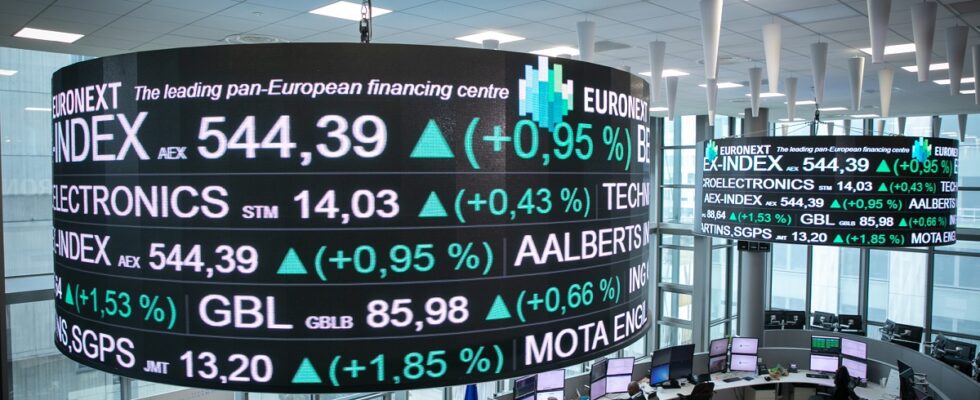(BFM Bourse) – The Parisian index lost 3.58% at the close of Wednesday, driven by the plunge of the Swiss bank. Market attention will also turn to the European Central Bank meeting on Thursday.
In three days, the Paris Stock Exchange experienced two atrocious sessions. The CAC 40 thus ended the day on Wednesday down 3.58%, after having already lost 2.9% on Monday, closing at 6,885.71 points, weighed down by the stock market torment of Credit Suisse.
The Swiss establishment suffered a violent stock market plunge, losing more than 30% during the day, before climbing back up the slope a little to close at -24% (the worst fall in its history on the stock market). The earthquake originated in statements by the President of the Saudi National Bank, Ammar Al Khudairy. The latter declared on Bloomberg TV that it was out of the question for his group, the largest shareholder of Credit Suisse with nearly 10%, to inject liquidity into the Swiss bank if it were to need it.
At the close of the European markets, the American indices are also in the bright red. The S&P 500 lost 1.9% and the Nasdaq Composite 1.3%.
>> Access our exclusive graphic analyses, and enter into the confidence of the Trading Portfolio
According to Bloomberg, the price of the Swiss bank’s Credit Default Swaps, instruments used to hedge against the risk of default by a country or a company, has now reached a level “close to signaling serious concerns” from investors.
These statements have given a big spotlight to the structural weaknesses of the Swiss establishment, which has suffered in recent years, weighed down by numerous cases, and, last year, by significant withdrawals from its customers.
Other European banks suffered. In Paris, Societe Generale lost 12.18% while BNP Paribas dropped 10.11%. In Frankfurt, Deutsche Bank lost more than 9%.
Fear in the interbank market
For Amandine Gerard, president of Financière de l’arc, the downward movements on the other banks can be explained by the fact “that we are coming back to the problem of the interbank system”.
“The banks lend to each other and if there starts to be mistrust at this level, we encounter a liquidity problem”, she explained on the antenna of BFM Business.
The specialist, however, pointed out that banks like BNP Paribas or Société Générale “[étaient] highly capitalized”, since the new regulations put in place following the financial crisis of 2008.
Bond relaxation
This movement of fear leads investors to hope for a pause in the rate hikes of the major central banks or at least a significant brake.
As a result, yields on government debt bonds fall. To see if the European Central Bank (ECB) confirms these expectations tomorrow at its monetary policy meeting.
If banks were in agony, so were cyclicals. Vallourec plunged 13.9%, Faurecia 11.9% and Alstom 10.5%.
In the middle of this red sea, Bolloré Group floated, gaining 8.3%, after announcing a plan to buy back 9.8% of its own shares.
The other asset classes are also struggling. The euro slipped 1.8% against the dollar, to 1.0677 dollars. The American currency benefits from its status as a safe haven against other currencies, being the currency of international transactions. The yen and the pound lose more than 1% against the dollar
Oil also fell, with the North Sea Brent contract for May delivery plunging 6% to $72.80 a barrel while the April contract on New York-listed WTI fell 6.4% to 66, $73 a barrel.
Julien Marion – ©2023 BFM Bourse
